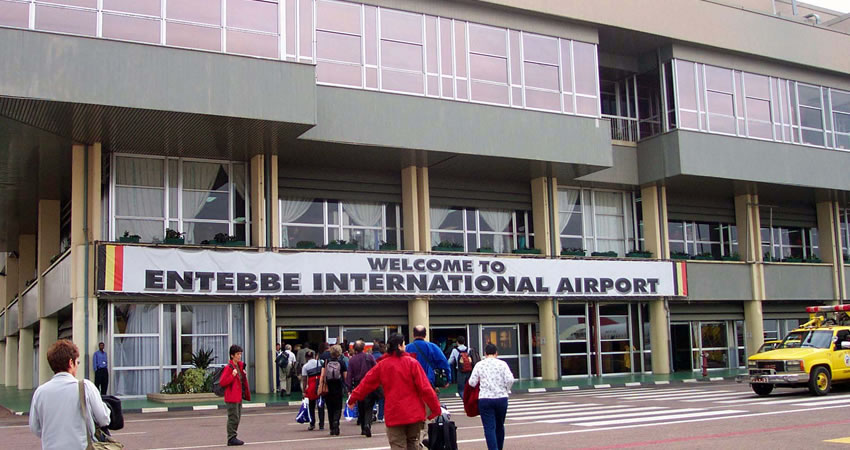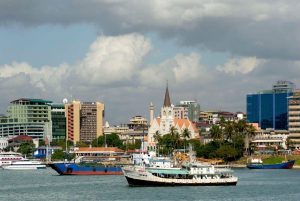The Chinese government has dismissed as “illogical propaganda” reports that they are confiscating facilities from African states because of indebtedness.
According to China’s Director-General for African Affairs Wu Peng, the money offered to African states for projects is not a debt trap as has been reported by people seeking to put China in a bad light.
“Which of the Chinese projects in Africa have been confiscated in Africa? NONE! The hype surrounding the Chinese ‘debt trap’ in Africa have NO factual basis and is being pushed on malicious grounds”, Peng said.
Today, China is the biggest lender to African economies, sinking a staggering $150billion in different African economies through its Belt and Road Initiative.
The situation could be worsened by the Coronavirus Pandemic which has left many African economies on their knees, which statistics show China could invest another $180 billion in African economies in the next five years.
China for instance owns three-quarters of Djibouti (75%) according to informal reports, while countries like Ethiopia ($13.7b) Kenya ($9.8b), Nigeria ($4b), Zambia ($6.3b), and DRC ($7.4b) continue to struggle to repay the huge Chinese debts.
China has recently been accused of using bad debt policies in Africa, citing a lack of transparency in loan agreements and consequent pressure from China to debtors to forcibly support their geostrategic interests in case they fail to service their debts.
China has also been accused of entering secret negotiations in which contracts on projects must be awarded to China-government-owned companies who charge far higher than the available market price.
These reports, China has dismissed as politically motivated.
“Facts and data fully show that this accusation is purely politically driven,” he said. “Its real intention is to drive a wedge between China and Africa’s friendly and cooperative relations,” Zhou Liujun, vice chairman of China International Development Cooperation Agency said.
Speaking about the same situation, Wu Jianghao, the Assistant Minister of Foreign Affairs, China wondered why money given by Western countries is considered as assistance for development while that given by China is a debt trap.
“Why is money offered by Western countries to developing countries considered ‘assistance for development, while the money offered by China is labeled as ‘debt trap’? This view is NOT logic or correct!”, Jianghao said.
Two years ago, the government of Uganda dismissed reports that China (one of its biggest lenders) was planning to confiscate its assets over repayment hurdles.
According to the Auditor General’s report, Uganda’s Public Debt rose from $9.1billion in 2017 to $11.1billion in 2018. The same report indicated some loans were risky due to hard conditions placed on them.
China apparently owns $3.1billion from Uganda’s public debt, however, the Minister of Finance Matia Kasaijja has recently reiterated it is impossible for China to confiscate Uganda’s assets.
“China taking over assets? … in Uganda, I have told you, as long as some of us are still in charge, unless there is really a catastrophe, and which I don’t see at all, that will make this economy go behind. So, … I’m not worried about China taking assets. They can do it elsewhere, I don’t know. But here, I don’t think it will come,” Kasaijja said during an interview with Voice of America in 2019.
However, in April this year, Kasaijja indicated he will approach major creditors like China and negotiate a possible loan repayment suspension as the country’s public debt shot to $18billion as of last year.
“I will not hesitate to approach them and say, you guys can suspend servicing these loans for say, maybe two years?” Kasaijja told Reuters.
This notwithstanding, the Uganda government has still failed to negotiate a $2.2billion debt from China’s Exim Bank after failing to agree on a condition to repay the loan from revenue accrued from the sale of its crude oil.
In a reply to China on this, Kasaijja said “we totally refused that, we cannot mortgage our oil.”
Kasaijja however was at the forefront as Uganda negotiated a Shs1.1trillion with Chinese Exim Bank for the expansion and upgrading of Entebbe International Airport.
While the loan was approved, many officials in government were not comfortable with the clauses of the loan repayment agreement, mostly those that gave China Bank so much power to determine budgets, inspect Civil Aviation Accounts and approve withdrawals from Civil Aviation accounts.
Indeed, the state minister for Finance, Amos Lugoloobi confirmed that that loan was poorly negotiated but added there was no cause for alarm as the airport would not be attached.
Civil Aviation officials called for the amendment of the debt repayment provisions, citing that the airport risked potential attachment by China.
Source: Nile Post






